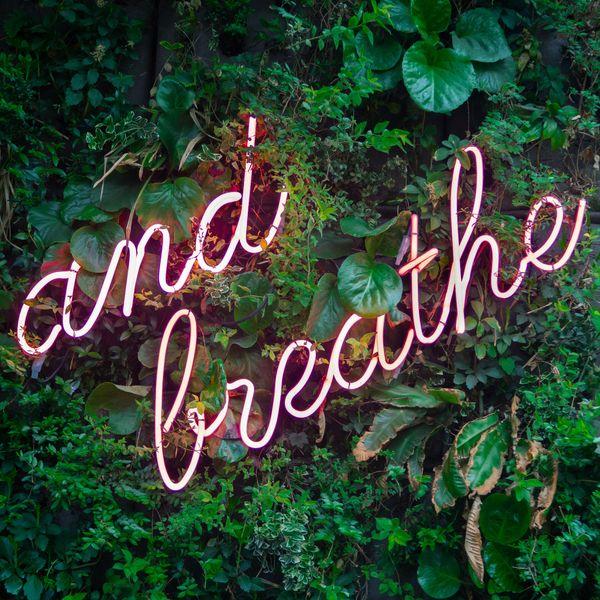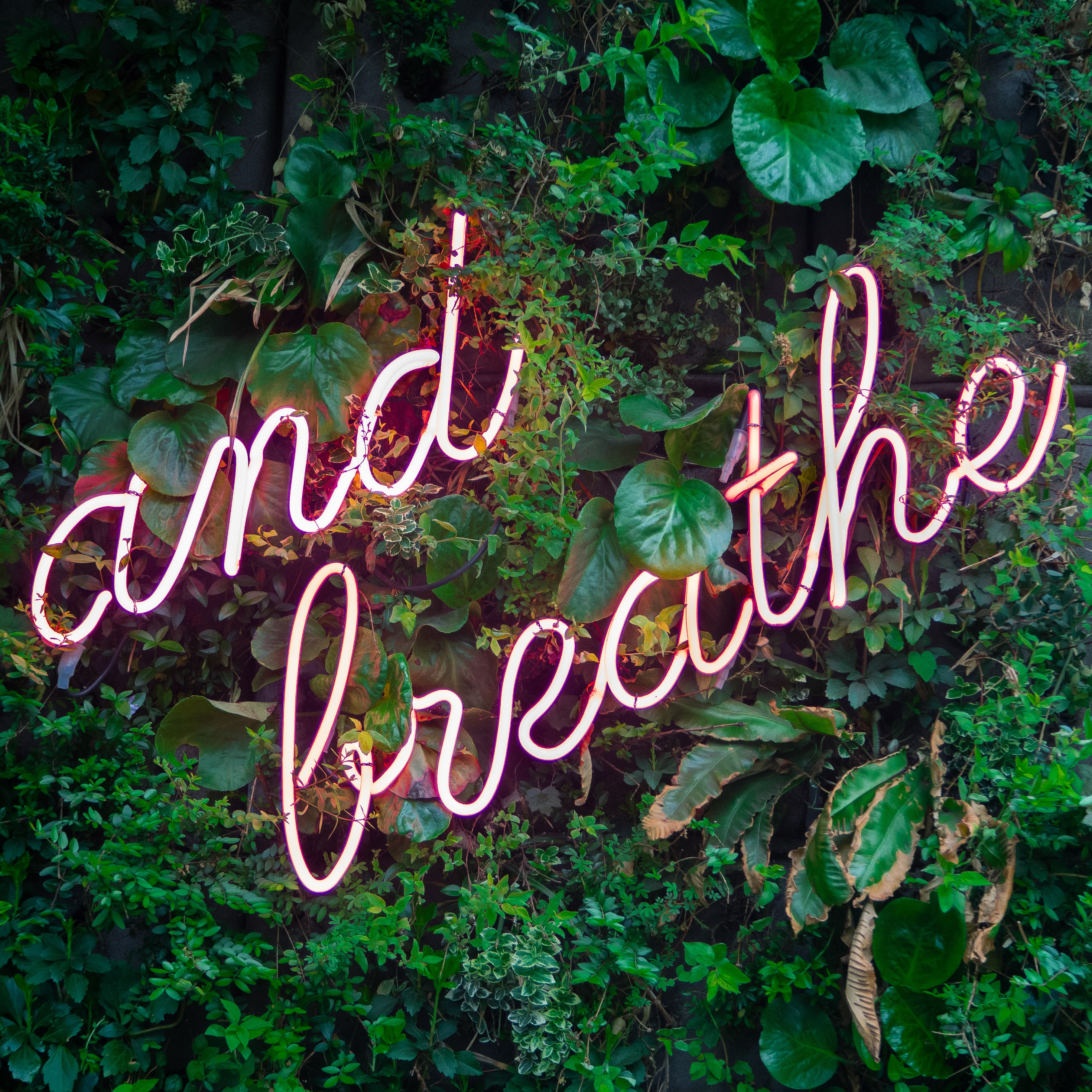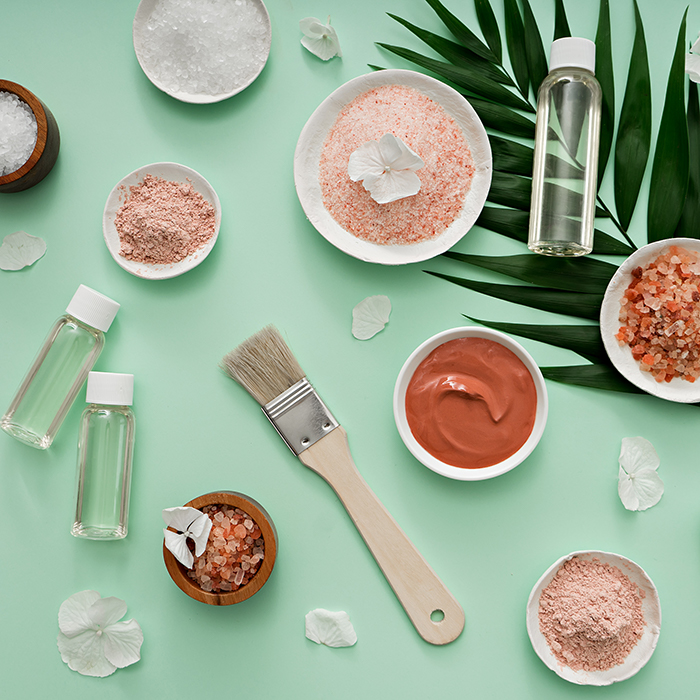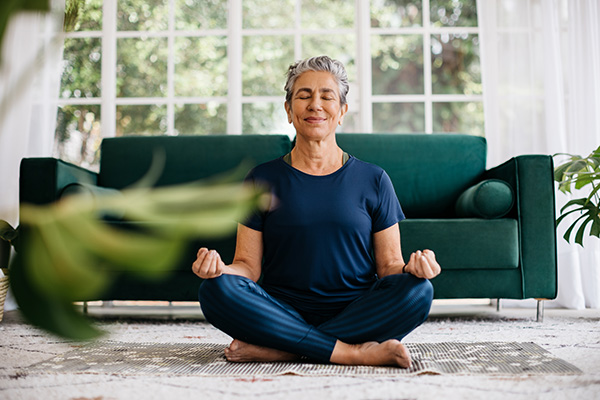Basic Relaxation Techniques Made Easy
Have you made time to relax today? That thought probably hasn’t crossed your mind at all. Most of us buzz busily through our days under stress without considering relaxation until we collapse on the couch at the end of another hectic week.
But what if there were a better way? What would happen if you made relaxation a part of every day, and not just a luxury reserved for the weekend?
Before your inner achiever starts to grumble, know this: relaxation does not equal laziness. And trust us, there is a better way!
You can get more relaxation in your days and still get just as much done. In fact, it may make you even more productive, and healthier too!1
Constant daily stress and anxiousness wear us down quickly, and stress affects both physical and mental health.2 We need moments of intentional recovery to calm and balance our busy lives with self-care.
Here are six basic relaxation tips you can enjoy every single day:
#1 Be in the Moment
If your mind is always 10 steps ahead, stress, anxiousness and tension will inevitably follow, and your days may seem to go by in a blur. We aren’t saying you should never think ahead or plan ahead, just set aside a block of time for that and give the present moment or task at hand your undivided attention, whether at home or at work
Being in the moment is the essence of practicing mindfulness, which can help you stay in a more calm and relaxed state of mind while you go about your days.
When you are mindful, relaxed and in tune with the moment, everything you do. from your work to the time spent with loved ones, will likely be more enjoyable and of a higher quality.
Also, skip the multitasking at work! Studies show it doesn’t actually help with productivity anyway, and it may even be unhealthy for your brain!3
If you're new to mindfulness, start small and don’t get down on yourself if you slip up. Just gently nudge yourself back into the moment and keep going.
It will get easier, we promise! You are essentially retraining your attention and focus, so it may take some time.
You can also get a little help from science-backed herbs, including adaptogens, which are herbs that help combat the physical and mental effects of stress and help keep you focused.4
Try Swanson Pure Science Herbals Pure Energy for all-day energy and sharpened concentration without the jitters. This synergistic blend of adaptogens, herbs and botanicals promotes a positive mood while fighting stress, anxiousness and daily fatigue.
#2 Breathe Deeply
It may seem like a basic function, but are you really breathing properly? Breathing is rarely on our minds since it comes naturally, but most people tend to take shallow breaths.5
This can be especially true when we’re busy, stressed or tense and actually need oxygen the most!
Shallow breathing makes us feel tense, but most of us don’t even notice we’re doing it. It also limits our body’s oxygen supply.
Deep, abdominal breathing encourages relaxation, helps minimizes stress response, reduces anxiousness and gives the body a healthy dose of oxygen, of which your brain uses a whopping 15-20%!6,7
Aim to breathe deeply and rhythmically as often as possible. Try setting reminders throughout the day to check your breathing, or pair your breath check with other activities to help you remember.
Also, try scheduling a few 30-second deep breathing sessions throughout the day. It doesn’t take a lot of time out of the day to make this relaxing, healthy activity a habit.
Feeling like your respiration could use some support? Consider adding a supplement known to support your airways like quercetin or NAC. There's even a combination formula available which features both for added convenience!
#3 Meditate for Mind & Body Health
Think meditation is just for yogis? No way! Everyone from Harvard researchers to the Mayo Clinic is talking about meditation.8,9
That’s because meditation has real benefits for the mind and body, including relaxation, stress relief, brain health and much more.
Meditation is a practice of training the mind to be present and centered while doing nothing. That may seem simplistic, but studies show meditation may increase the brain’s ability to process information, slow down age-related changes to the brain and positively influence the amygdala (the brain’s emotional center) long after a meditation session has ended.10
Becoming skilled at meditation takes practice, just like any other skill you would learn. The first time you sit down to try and clear your mind and meditate, your mind will inevitably wander.
It may help to focus on the sound and rhythm of your breathing, or you can choose a personal mantra to focus your mind.
Find a quiet, comfortable place where you can sit undisturbed for a few minutes at a time. Start with 1-3 minutes each day and work your way up to 5-10 minutes a day.
Small meditation sessions can instill impactful changes to your sense of wellbeing and daily relaxation. If you are struggling to get started, there are several smartphone apps that may be worth checking out to help coach you through starting a meditation practice.
#4 Enjoy Quality Social Time
Many relaxation practices focus on time alone and mental efforts, but spending time socializing can help you feel more relaxed too. Genuinely connecting with other people helps us feel more comfortable and centered in general, and the health of our relationships are undeniably linked to our overall wellbeing.11
It’s easy to get caught up in work and other responsibilities and skip social time. But connecting with others makes us feel less alone both in our struggles and our joys!
Whether it’s chatting with a coworker through video conference or calling a best friend or family member to catch up, social time and good conversation benefit our mental wellbeing and stress levels, which can affect our physical wellbeing too.11
But keep an eye on negativity. Venting is healthy, but dwelling on negative thoughts for extended periods of time is not. It may be helpful to talk with a therapist if your social time repeatedly involves a negative dialog.
#5 Practice Body Awareness
Mental exercises and awareness are essential for helping us relax, but so is body awareness. Many of us don’t notice tension building in our bodies until it triggers discomfort and compounds our stress.
But if you tune in to your body’s stress response, you may notice physical reactions including tight muscles, improper posture and even nervous habits like biting your nails.
Being aware of how our bodies respond to stress can help us combat tension and encourage relaxation. Try to relax tense areas of your body one by one mentally.
A body awareness practice can compliment deep breathing sessions. While breathing deeply, direct your thoughts and breath toward a tense area of your body and mentally focus on relaxing those muscles.
The pairing of body and breath awareness is a core component of many types of yoga. If you repeatedly struggle with the physical effects of tension, a daily yoga practice may help.
And getting your body moving more every day is an excellent way to promote wellbeing while combatting stress, anxiousness and tension.
Having trouble relaxing your mind and body? Try Mellow Mag, our replenishing, relaxing magnesium drink that gives you healthy relaxation on demand.
Learn more about how magnesium helps with relaxation in Find Your Everyday Calm with Magnesium.
#6 Try Aromatherapy
Have you ever noticed a scent that evoked a vivid memory? Like the comforting fragrance of baked apple pie, scents can have powerful effects and can transport us beyond our current state of mind.
That’s the basis of Aromatherapy, a centuries-old practice using various scents for energizing, uplifting and calming our bodies and minds, promoting sleep and more. Modern studies have now acknowledged the physiological impact of certain scents.12
Add an aromatherapy diffuser and a few of your favorite aromatherapy oil scents to your self-care kit. Try lavender essential oil for relaxation and relieving tension, orange essential oil to boost mood, or peppermint oil to energize.
Relaxation is Not a Luxury
Many of us embrace being busy and stressed as a badge of honor and look at relaxation as a luxury, but we need moments of relaxation to stay balanced.
Finding ways to fit relaxation into your day doesn’t have to slow you down. When it’s done the right way, relaxation can make you more productive, more creative, healthier and happier overall.
Treat relaxation-inducing activities like deep breathing exercises, mindfulness, meditation, body awareness, quality time with friends and family and aromatherapy as necessary additions to your wellness routine.
Be sure to sign up for Swanson Health emails to get new articles, product innovations and our best promotions delivered to your inbox.

About Lindsey Toth, MS, RD
Registered Dietitian, Swanson Health Products
Lindsey is a nationally-recognized registered dietitian and nutritionist with a soft spot for ice cream. She empowers people to take charge of their health by finding the balance between the pleasure and nourishment in food. Her philosophy is that you should take care of your body because it’s the only permanent home you have. It’s what inspired her to pursue a career in nutrition and, ultimately, led her to Swanson Health.
*These statements have not been evaluated by the Food and Drug Administration. These products are not intended to diagnose, treat, cure, or prevent any disease.
Sources
1. Sometimes the Most Productive Thing You Can Do is Relax. University of New England. Read source
2. Fact Sheet. National Institutes of Mental Health.Read source
3. Multitasking Damages Your Brain. Forbes. Read source
4. Adaptogens. Cleveland Clinic. Read source
5. You're Not Breathing Properly. Chicago Tribune. Read source
6. Relaxation techniques. Harvard Health. Read source
7. The Blood Supply of the Brain. University of Washington. Read source
8. Mindfulness & Meditation. Harvard University. Read source
9. Meditation. Mayo Clinic. Read source
10. Meditation and Mindfulness. National Center for Complimentary and Integrative Health. Read source
11. Strong Relationships, Strong Health. Better Health. Read source
12. Lavender and the Nervous System. National Library of Medicine. Read source




